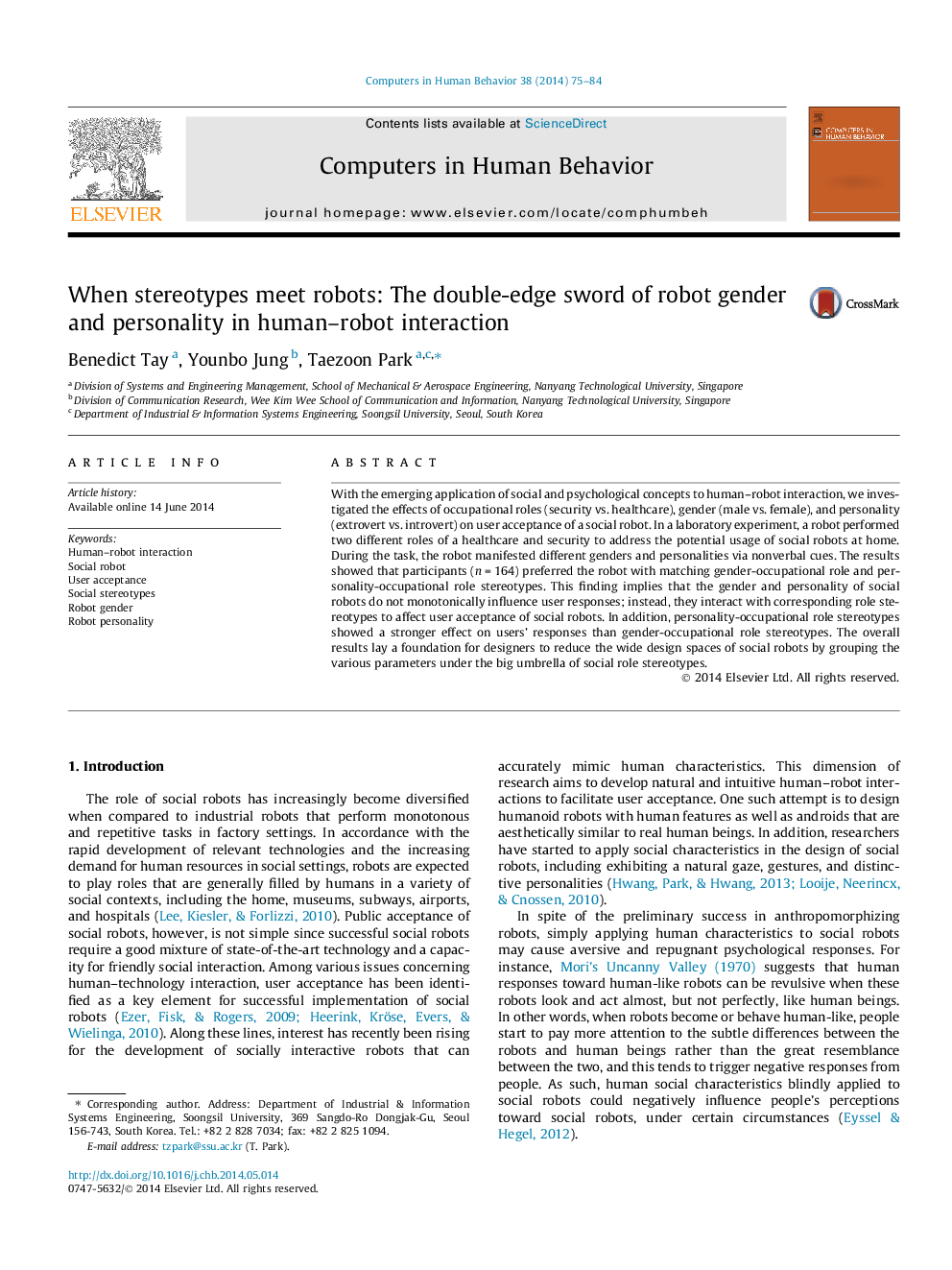| Article ID | Journal | Published Year | Pages | File Type |
|---|---|---|---|---|
| 350614 | Computers in Human Behavior | 2014 | 10 Pages |
•We investigated the effect of role stereotypes on user acceptance of social robots.•People respond to social robots based on gender and personality stereotypes in a role.•People more easily accepted robots that were in line with their existing stereotypes.•A social robot is neither a solely affective nor functional product.•In-role robot personality, compared to gender, was more influencing on user responses.
With the emerging application of social and psychological concepts to human–robot interaction, we investigated the effects of occupational roles (security vs. healthcare), gender (male vs. female), and personality (extrovert vs. introvert) on user acceptance of a social robot. In a laboratory experiment, a robot performed two different roles of a healthcare and security to address the potential usage of social robots at home. During the task, the robot manifested different genders and personalities via nonverbal cues. The results showed that participants (n = 164) preferred the robot with matching gender-occupational role and personality-occupational role stereotypes. This finding implies that the gender and personality of social robots do not monotonically influence user responses; instead, they interact with corresponding role stereotypes to affect user acceptance of social robots. In addition, personality-occupational role stereotypes showed a stronger effect on users' responses than gender-occupational role stereotypes. The overall results lay a foundation for designers to reduce the wide design spaces of social robots by grouping the various parameters under the big umbrella of social role stereotypes.
